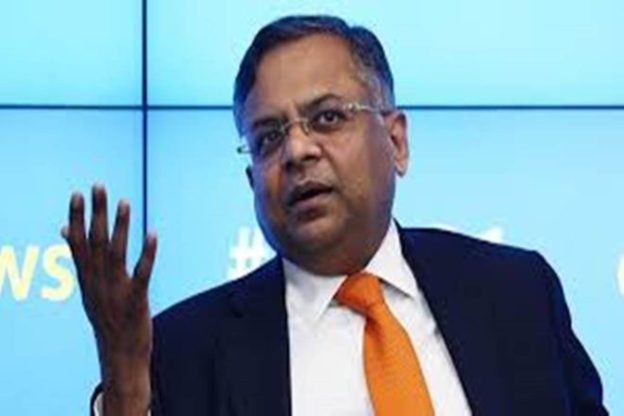“There are many things going for India. I think as the economy fully opens up post the pandemic, I believe that our growth will continue to get stronger. We’ll get the full benefit of the consumer spend,” Chandrasekaran said.
The coronavirus pandemic has not impacted India’s long-term growth trajectory although it has delayed it and in this decade, the country will lead the global growth rates, Tata group Chairman N Chandrasekaran said on Tuesday.
Speaking at tech giant Microsoft’s annual flagship event, Future Ready, he said it should be a national priority to enable access to healthcare and education using digital infrastructure for all in the country, considering how the acceleration of digital adoption during the pandemic has created a divide as many people, who do not have the means and access, have been left behind.
“There are many things going for India. I think as the economy fully opens up post the pandemic, I believe that our growth will continue to get stronger. We’ll get the full benefit of the consumer spend,” Chandrasekaran said.
He further said, “the pandemic per se has not really impacted the long-term growth trajectory of India. It has delayed it because the fundamental factors, whether it is formalisation of the economy, the youth or more people coming into the middle income, all of these are totally intact.”
In the current global context, he said, “I think the Indian situation is pretty unique and India’s growth is going to be more fundamentally important going forward. Because even if the global growth is going to be good, it’s going to be a little bit behind the expected levels of 2021. So given that, I feel India has a larger role to play.”
Citing examples of GST, bankruptcy code, reduction in the corporate tax rate, strengthening of the balance sheet of the banks, he said all these were done before the pandemic and now huge infrastructure has been built.
“Many other things that are happening today will contribute to the growth of India. My own assessment is that in this decade, India will lead the global growth rates significantly,” he asserted.
On the impact of COVID-19 on digital adoption, he said, “we have really seen certain things getting accelerated, for example digital adoption, how fast it has got accelerated be it in shopping, be it in education, be it in consulting a doctor or whatever it is, people have gotten used going digital.” However, he lamented that it has not been equal.
“If you take education, for example, all the urban kids who have access to a device and have access to the digital infrastructure could do online schooling. But, equally a large number of kids in the rural areas or poor people didn’t have access to devices and didn’t have access to the digital infrastructure, which is a big problem.
“Years of schooling have been lost, or at least a couple of years have been lost for these people,” Chandrasekaran said. Seeking to address the issue, he said, “I think it should be a national priority to enable national access to healthcare and education among other things. Top priority should be education, and it should be everybody’s job.”
He further said while the government can put the policy infrastructure but the corporate sector has to play its part. Chandrasekaran also said there will be an acceleration and thrust towards sustainability as the pandemic has made people realise how a non-polluted environment can be like. He also welcomed India government’s bold commitment at the COP26 to achieve net-zero carbon emissions by 2070, and termed the targets of 2030 as encouraging.
https://www.financialexpress.com/economy/covid-19-pandemic-has-not-impacted-indias-long-term-growth-trajectory-n-chandrasekaran/2403644/





